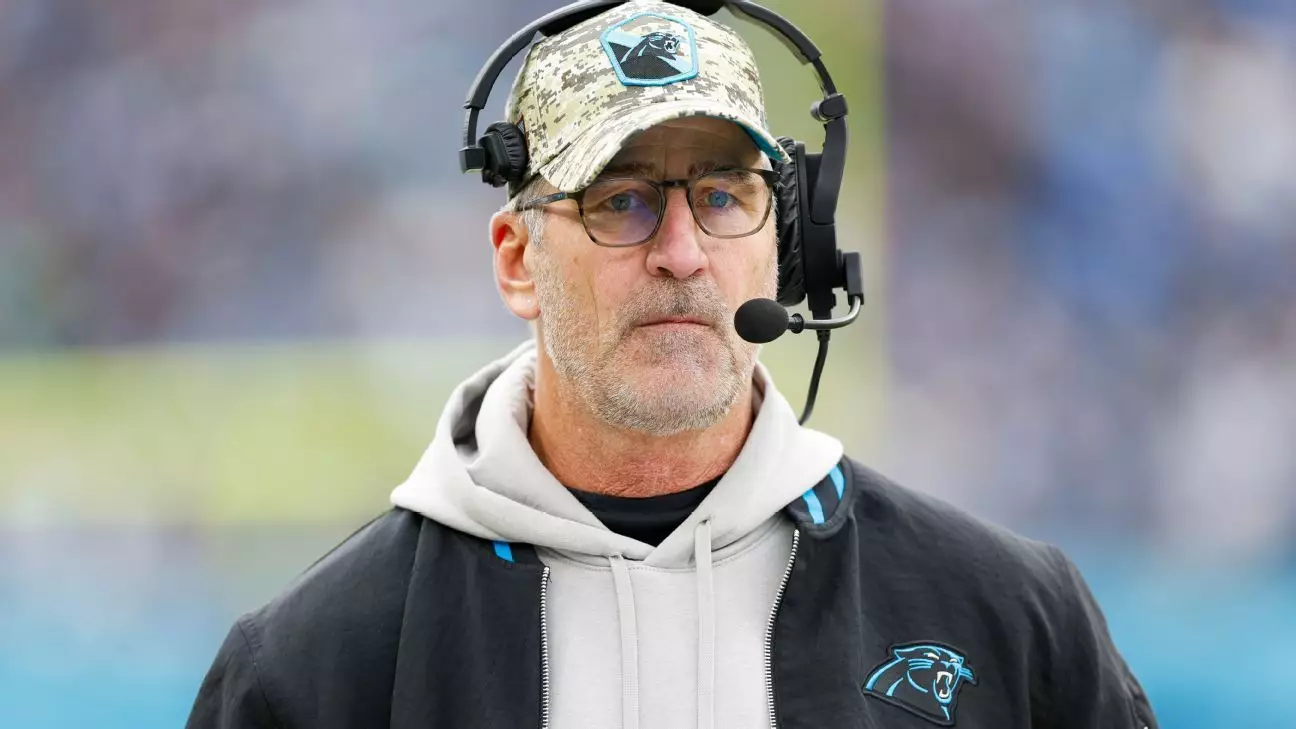The decision to appoint Frank Reich as the interim football coach at Stanford reflects the intricate dance of ambition and desperation that often characterizes college sports. While some may view this move as simply a pragmatic selection during turbulent times, it carries a deeper implication: a shift in how universities approach their athletic programs, particularly in the wake of ethical scandals and declining performance. The fact that Stanford has chosen a veteran NFL coach underscores the pressing need for a transformation within a program that once prided itself on its competitive edge but has lost direction amid administrative challenges and coaching controversies.
Reich’s extensive experience in the NFL is noteworthy, but hiring a coach with his mixed record raises eyebrows. A dual identity as a player and coach in the highly scrutinized NFL may not translate seamlessly into the collegiate environment, which requires a unique combination of mentoring, recruitment, and academic responsibility. Stanford, a beacon of academic excellence, must navigate the delicate balance between winning on the field and nurturing young minds off of it. The expectation is enormously high; the stakes are considerably higher.
A Case Study in Leadership Failure
The firing of Troy Taylor is emblematic of a broader crisis in leadership within college sports. Reports of bullying and harassment paint a grim picture of institutional culture—a culture that has evidently spiraled out of control. When allegations arise of coaches belittling staff and engaging in unprofessional behavior, it reveals more than just individual failings; it raises critical questions about the systems in place that allow such conduct to flourish.
Stanford’s move to mitigate the damage by bringing in Reich signifies a rejection of the toxic leadership model typified by Taylor’s tenure. Yet, the question remains: will Reich’s appointment genuinely usher in a positive transformation, or is it merely a band-aid solution to a gaping wound? His past as a coach who has seen the inside of an NFL locker room, complete with its own challenges of camaraderie and conflict, might provide fresh insights. Nevertheless, there is hesitation surrounding whether Reich can adjust to the academic-centric environment of Stanford, where young athletes are also scholars navigating a maze of expectations.
Andrew Luck’s Pivotal Role
At the heart of this upheaval is Andrew Luck’s position as Stanford’s football general manager. His integration into the athletic department represents a significant change, particularly for a program that has not enjoyed winning seasons since 2020. The appointment of Reich and the elevation of Nate Byham as offensive coordinator speak volumes about Luck’s vision and ambitions for the program. It is a gamble: selecting a coach whose recent coaching history has been marked by disappointment could either be a stroke of brilliance or a misstep that hobbles Stanford’s recovery efforts further.
Luck’s portrayal of Reich as a “teacher” and advocate for player development carries weight. If Reich can translate the life lessons learned from his NFL experiences into a college setting, the potential for a bright future exists. However, it will take more than good intentions and a supportive office to turn Stanford football around. The university must cultivate a climate that empowers both athletes and staff, prioritizing respect and inclusivity to facilitate real, sustainable success.
The Reality of College Sports Ethics
In an era where college athletics face increasing scrutiny over ethical behavior, Maverick hires like Reich’s must be viewed through an objective lens. Will he prioritize the holistic growth of his players, ensuring that they not only excel in competition but are also prepared for life beyond college? Success in college football should extend far beyond the scoreboard; it should encompass developing character, resilience, and academic integrity.
Stanford’s decision to search for a long-term athletic director amid these changes illustrates a critical introspection within the program. To truly succeed, the football program must be part of a broader cultural shift across athletic departments. Emphasizing ethics and education while striving for competitive excellence will be a formidable undertaking, but it is one that universities must embark on, particularly institutions of higher learning like Stanford.
Bringing a seasoned coach into a struggling environment presents both an opportunity and a risk. Only time will tell if this bold maneuver will yield long-lasting improvements or simply mark another chapter in a series of misaligned ambitions within college sports. For now, all eyes will be on Frank Reich and his ability to bridge the chasm between athletic victories and personal growth in the complex arena of college football.

